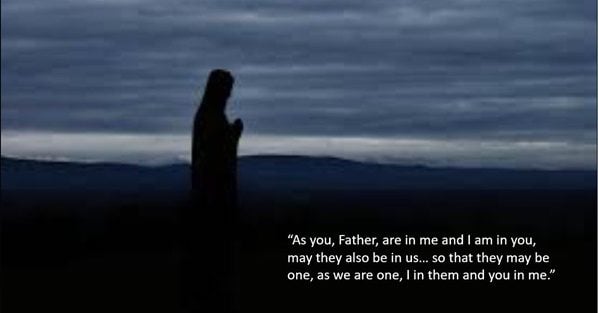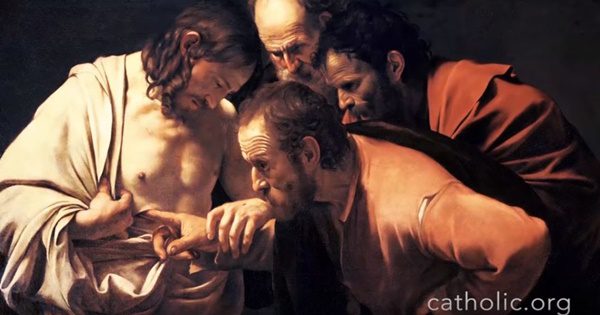The following is a sermon I preached at Clackamas United Church of Christ, near Portland, Oregon. You can read or watch the sermon below. The primary scripture texts was Luke 9:28-36.
Today I want to do something a little different. I’m not sure if it will work. If you like it, that’s great. If you don’t like it, that’s fine. I will be in the back of the sanctuary after worship. You can come and apologize to me then…
I would like to talk with you about a Christian doctrine. I know that just hearing the word “doctrine” makes many of us want to groan. So, let’s get it out of our system. On the count of three, let’s all groan together. 1, 2, 3…
For many of us, the word doctrine feels heavy and burdensome. Many of us were taught that you must believe these doctrines or else God will hate us and send us to hell.
I want to be clear that this idea is false. It is not only false; it is harmful and goes against the whole point of doctrine. Here’s why: The word doctrine does mean teaching, but it means much more than teaching. It comes from the Latin word for “Doctor.” And what does a doctor do? A doctor heals. In fact, a doctor has to sign an oath to do no harm.
Doctrine should work in the same way. One of my favorite theologians is a woman named Diana Butler Bass. She says that Christian doctrine is meant to heal. Any doctrine that does not provide some sense of healing should not be followed. For sure, some doctrines heal us by revealing that we are loved. Other doctrines heal us by challenging us to work for justice. But if a doctrine doesn’t provide some sense of healing, then it isn’t a true Christian teaching. You can throw it away or you can set it aside and come back to it later when it might provide healing.
Today I want to explore with you the Christian doctrine of the Incarnation. Usually I only preach about this doctrine on Christmas when we celebrate Jesus born as Immanuel, or God with us. I bring it up today because we have the story of the Transfiguration – a big academic word that means transformation.
In the story, Jesus hikes mountain with three of his friends and they see him transformed and glowing with the glory of God.
And the Christian doctrine of the Incarnation claims that what the disciples saw about Jesus on that mountain had always been true about Jesus. It wasn’t so much that Jesus was transformed, but the disciples’ vision was transformed so that they could see what was true about Jesus. The human Jesus was always been imbued with the wonder and the glory of God. The human and the divine peacefully coexisted within Jesus.
The reason this matters is because throughout most of human history we have thought that there is a fundamental conflict between God and humanity. There is the holy – which is God – and there is the profane – which is the world. And so we generally have thought that God is holy and can’t go near the profane. God is excluded from creation, so God is somewhere way out there and every once in a while comes to earth to try to teach us how to live.
But the Incarnation is a healing doctrine for me because it claims that the material world is fundamentally good. It claims that there is no conflict or rivalry between God and the world. In fact, the sacred and the world co-exist, and we see this in the person of Jesus. In Jesus, the fullness of God and the fullness of humanity do not exclude one another. Rather, they dwell together in perfect harmony.
And here is where this doctrine gets really interesting and blows my mind. There was a teaching in the early church that said God became human in Jesus so that humans would become god-like. Jesus catches us up in the life of God. And it’s not because of anything we do. It’s because of what God did in Jesus. Here’s what that means: What is true about Jesus is true about you.
Jesus’ face shines with the glory of God. And so does yours. You carry within you the glory of humanity. And you carry within you the glory of God.
That’s the fundamental teaching of the doctrine of the Incarnation. The disciples glimpsed this truth while they were on top of the mountain. And I’m sure that many of us can relate. I know some of you like to hike up mountains. When we’re in nature we often have similar mystical glimpses of the divine. For me, it’s humbling to hike a mountain and look over the vastness of creation. I sense the world is so much bigger than my perspective, my conflicts, and my problems. The bigness of the world is a reminder of the glory of God – that just like Jesus was infused with the oneness of the glory of God, so God’s glory infuses all of creation in an essential oneness.
But soon I have to hike down the mountain. You can’t stay up on the mountain. You can’t stay in the mystical experience. At some point you have to come down the mountain.
Which brings up a question: How do you take that mystical experience of the glory of God with us when we come down from the mystical experience? It takes a little training, but it involves opening our eyes to seeing the glory of God shining in the face of our fellow human beings in our everyday lives.
When the disciples came down the mountain, they entered a village and met a man whose son was possessed by demons. The man begged Jesus’ disciples to cure his son, but they couldn’t. Then the man asked Jesus. Jesus rebuked the disciples for their lack of faith and then healed the boy by casting out the unclean spirit from his body.
And at this point I have a few questions. Like, demon possession? What are you going to do with that story?
We read that story at Bible study this last week. I said, First the disciples see the glory of God shining within Jesus … and then we have this really weird story about Jesus healing a boy with a demon. I told them that while I love the transfiguration story, I am not personally going around casting out demons from anyone…
Bernie looked at us and said, “Well, it’s like this: I was at the grocery a few days ago and there was this mother and her young child. Her child was screaming and in a fit. And the mother was having a very hard time. And other people were either giving her the look or awkwardly walking in the other direction.” Bernie says that something inside of her compelled her to go to the mother, put her hand on her shoulder, and say, “I’ve been there, too. I know what it’s like. You are not alone.”
What Bernie experienced with this mother was a deep connection. Like the divine and human were one in Jesus, Bernie sensed a oneness with this mother. Sometimes we have challenging moments in our lives. And we don’t necessarily want anyone to solve them, but we also don’t want to feel excluded or that people are abandoning us. We desperately want someone to come up to us and live into the oneness of being human by saying, “You are not alone. I am here with you.”
The Incarnation tells us that the glory of God and the glory of humanity coexisted in an essential oneness in Jesus. But the Incarnation also tells us that the glory of God shines within each of us. It shines within you and me. It shines within a mother and her child in the grocery store. And as Jesus teaches, it shines within those he called the least of these. Those who are often marginalized and excluded.
And here is what I feel compelled to proclaim today in the face of events in the United Methodist Church last week: the doctrine of the Incarnation teaches us that God’s grace and love and welcome have always been more inclusive and expansive than we could ever imagined.
The healing doctrine of the Incarnation says that there is no conflict or exclusion between God and humanity because God and humanity mingle together in the person Jesus. The Incarnation matters because it means that we can no longer use God as a weapon to exclude people from the body of Christ based on their gender, color, or sexual identity.
The glory of God shines in the face of all people, including our LGBTQ siblings. No matter what any church says, our LGBTQ siblings are loved and accepted just as they are. For too long churches have said LGBTQ folk are inherently sinful and so they should be excluded from full participation in church. But that’s a false teaching. The doctrine of the Incarnation teaches that the fullness of humanity is included in the divine life. The LGBTQ experience is part of the fullness of humanity. So the sin is not being LGBTQ. The sin is when churches exclude. LGBTQ folks don’t need to be transformed. A church that excludes needs to be transformed.
And that transformation starts with us. We are a place where straight and LGBTQ folk can come and know that we are all included, for we are all loved by God and by one another. We are not perfect. Every church and every denomination has baggage. I have baggage. But we can help each other carry that baggage. Why? Because like Jesus, our faces shine with the glory of God.
May our eyes be open to seeing the glory of God shining in one another today and forevermore. Amen.
Image: Flickr, Ted, Creative Commons License. Some changes made.












